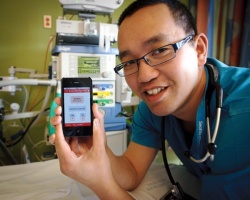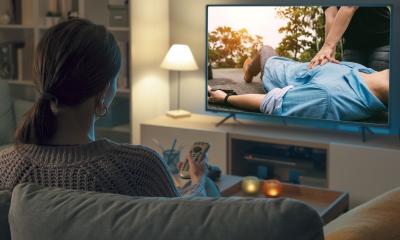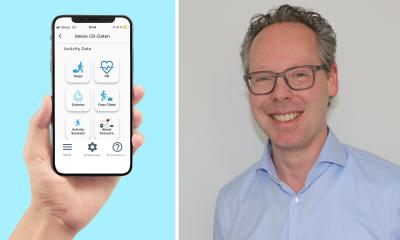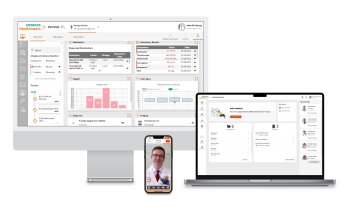Free phone app helped doctors perform better in simulated cardiac emergency
Doctors who used a free iPhone application provided by the UK Resuscitation Council performed significantly better in a simulated medical emergency than those who did not, according to a study in the April issue of Anaesthesia.


“Every year approximately 30,000 people in the UK have an unexpected cardiac arrest in hospital and, despite significant advances in resuscitation research, survival rates for adults suffering a cardiac arrest remain poor” says Dr Daniel Low, the consultant anaesthetist who developed the application.
“More than 60,000 free copies of the iResus © application have already been downloaded and a healthcare professional recently told us that they had used it when they were involved in an out-of-hospital paediatric emergency. Being able to refer to paediatric drug doses they were unfamiliar with helped them to save a child’s life.”
Thirty-one doctors who had received advanced life-support training in the last four years were recruited to take part in the study at the Royal United Hospital, Bath, UK. The aim of the research was to see if the free iResus © application, which uses adult and paediatric algorithms and provides appropriate and user-friendly prompts, produced better results in a simulated medical emergency than relying purely on memory.
The doctors were divided into two groups, one armed with the iResus © application and the other without. They were then put through a simulated cardiac arrest emergency, assisted by a nurse, and their knowledge and skills were evaluated using the CASTest scoring system.
Doctors who used the iResus © application scored an average of 84.5 (range: 75.5 to 92.5) out of 100, which was significantly higher than the 72 average (range: 62 to 87) achieved in the control group.
All of the doctors who took part in the study were given the opportunity to try out the application and the general consensus was very positive.
“The doctors in our study found the application easy to use, felt that it would provide them with increased confidence in a stressful scenario and said that they would be happy to use it in a real clinical emergency” says Dr Low, who trained in the UK and recently moved to Seattle Children’s Hospital, University of Washington, Washington State, USA. “When we asked them to mark those three benefits out of ten, the median scores were 8.0, 7.5 and 7.5 respectively.
“They did not feel that using the iResus © application was unprofessional or reflected a poor level of training in a real clinical situation. The application provides almost instant access to the appropriate algorithms and drug doses for resuscitation. This is important because research has demonstrated that when doctors are stressed they are more likely to make dosing errors.”
The doctors had an average age of 27.5 years and had received their medical degree, on average, just under four years before they took part in the study. They came from a range of medical specialities, including anaesthesia, general medicine, paediatrics, emergency medicine, intensive care and surgery. The third who already owned iPhones were split equally between the two groups.
“Our study provides further support for the current evidence that CPR prompt devices improve skills and can lead to a better outcome when a patient suffers a cardiac arrest” concludes Dr Low.
“Although our research covered doctors who had qualified in the last four years, we feel that the iResus © application is just as useful for more experienced medical professionals, as operating in a high-stress environment can lead to sub-optimal performance in anyone.
“We believe that this simple application, which can be downloaded free, provides valuable additional support for all doctors faced with a life-saving emergency.”
29.03.2011











